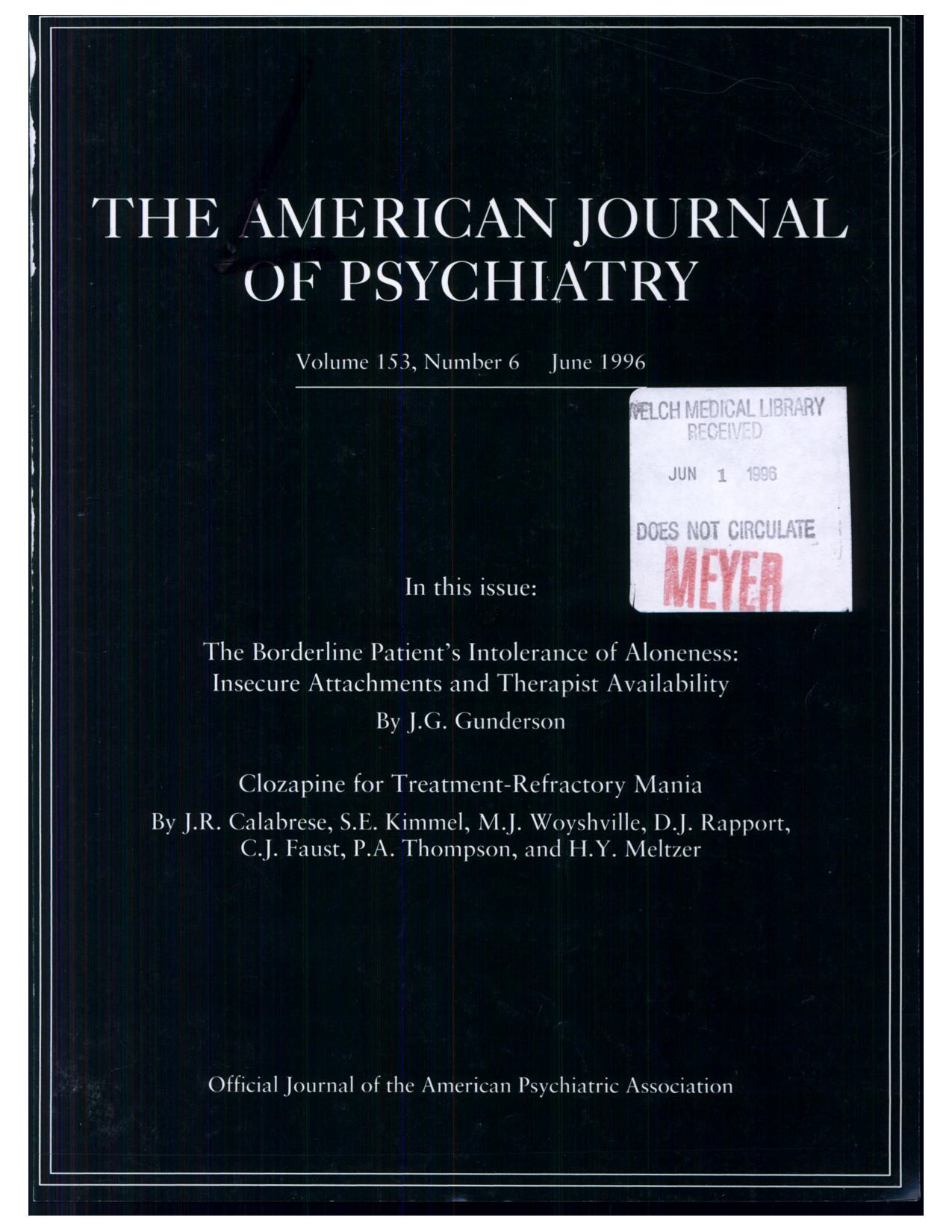Quality of life for patients with obsessive-compulsive disorder
Abstract
OBJECTIVE: The health-related quality of life of patients with obsessive-compulsive disorder was compared to published norms for the general U.S. population and for patients with either depressive disorders or diabetes. METHOD: Sixty medication-free outpatients with moderate to severe obsessive-compulsive disorder were evaluated by using the Structured Clinical Interview for DSM-III-R and the Yale- Brown Obsessive Compulsive Scale. Health-related quality of life was measured with the self-rated Medical Outcomes Study 36-Item Short-Form Health Survey. RESULTS: The instrumental role performance and social functioning of the patients with obsessive-compulsive disorder were worse than those of the general population and of diabetes patients. The more severe the obsessive-compulsive disorder, the lower were the patients' social functioning scores, even after depression ratings were controlled for; scores on instrumental role performance did not correlate with severity of obsessive-compulsive disorder. The ratings of the obsessive-compulsive disorder patients on physical health domains resembled those of the general population and exceeded those of the diabetes patients. The general health and physical health ratings of the obsessive-compulsive disorder patients exceeded those of the depressed patients. In mental health domains, after adjustment for differences in gender distribution, quality of life ratings were similar for the patients with obsessive-compulsive disorder and those with depressive disorders. CONCLUSIONS: Moderate to severe obsessive- compulsive disorder is associated with impaired social functioning and impaired instrumental role performance, but only impairment in social functioning is linearly related to severity of obsessive-compulsive disorder.
Access content
To read the fulltext, please use one of the options below to sign in or purchase access.- Personal login
- Institutional Login
- Sign in via OpenAthens
- Register for access
-
Please login/register if you wish to pair your device and check access availability.
Not a subscriber?
PsychiatryOnline subscription options offer access to the DSM-5 library, books, journals, CME, and patient resources. This all-in-one virtual library provides psychiatrists and mental health professionals with key resources for diagnosis, treatment, research, and professional development.
Need more help? PsychiatryOnline Customer Service may be reached by emailing [email protected] or by calling 800-368-5777 (in the U.S.) or 703-907-7322 (outside the U.S.).



